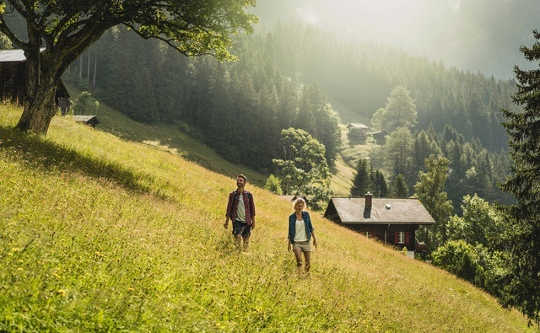
Places that make you feel “in nature,” such as parks, beaches, and campgrounds, are likely different than those that your parents or grandparents would have cited.
“If we just try to teach people the importance of nature, that’s not going to work. They have to interact with it.”
This is what University of Washington psychology professor Peter Kahn calls “environmental generational amnesia”—the idea that each generation perceives the environment into which it’s born, no matter how developed, urbanized, or polluted, as the norm. And so what each generation comes to think of as “nature” is relative, based on what they’re exposed to.
In a new paper in Children, Youth and Environments, Kahn and coauthor and doctoral student Thea Weiss argue that more frequent and meaningful interactions with nature can enhance our connection to—and definition of—the natural world.
“There’s a shifting baseline of what we consider the environment, and as that baseline becomes impoverished, we don’t even see it,” Kahn says. “If we just try to teach people the importance of nature, that’s not going to work. They have to interact with it.”
The ‘new normal’
For years, Kahn has examined how people perceive and impact the environment. As cities grow and open spaces shrink, it is environmental generational amnesia, Kahn argues, that enables development to continue relentlessly. Each generation inherits a new baseline for what nature is, and what “normal” surroundings are.
During his early years in academia, Kahn studied children’s concepts of the environment in Houston, one of the largest and most polluted cities in the country. He found that, when children were asked about air pollution, most could explain it and point out other cities that were polluted—but not their own.
“With each ensuing generation, the amount of environmental degradation increases, but each generation tends to perceive that degraded condition as the nondegraded condition, as the normal experience,” Kahn and Weiss write in their paper.
Experience some ‘big nature’
Research has linked exposure to the outdoors with physical and mental health benefits, greater ability to focus and communicate with others, and an overall improvement in quality of life. At the same time, health conditions connected to sedentary lifestyles, such as diabetes and obesity, are on the rise.
Interacting with nature can mean accessing what is available, while aspiring to what is not.
One solution is to provide opportunities—for children and adults—for encounters with “big nature.” By big, Kahn means wild, in the most traditional sense: old-growth forests, unshackled rivers, and untamed species like grizzly bears and native trout.
But “big nature,” he concedes, is also relative: To a child in a city, playing in a fountain is an experience with a natural element. Kahn says he tries to be realistic about how and where people live; interacting with nature can mean accessing what is available, while aspiring to what is not.
Interacting with nature makes a difference in how people view and move in the world, Kahn says. To gain perspective on what children learn from nature, the authors turned to a Seattle preschool, Fiddleheads Forest School, where director Kit Harrington has created a curriculum shaped by the outdoors. There, the authors observed children developing skills that adults might take for granted but that are only learned through the experience of being outside: mimicking bird calls, digging in the dirt, and even protecting one’s body during a fall.
“Knowing how to do that is not a given,” Kahn says. “We have an entire generation that spends so much time in front of screens that, when they do go out into nature, they don’t know how to interact with it, or handle themselves.”
Meaningful interactions with nature not only can teach, but also help people rejuvenate, reflect, and recognize the importance of the outdoors. If a bike path, playground, or trailhead is the closest nature to you, then you should take advantage of it.
Developing a “nature language”—encountering the environment in ways large and small that result in positive feelings—can begin to reverse environmental generational amnesia.
Source: University of Washington
Related Books:
at InnerSelf Market and Amazon


























